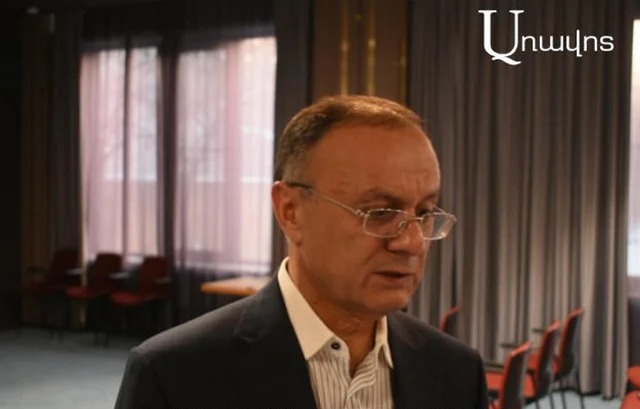“Stanislav Zas’s statement stems from the CSTO regulations,” former Armenian Minister of Defense Seyran Ohanyan told Aravot Daily in reference to CSTO Secretary General Stanislav Zas’s statement that the aggravation of the situation at the southern border of Armenia is connected with the establishment of a new border with Azerbaijan, it is a “border incident” and the CSTO is not going to intervene.
The situation in Syunik has been tense since the beginning of May with the invasion of the Azerbaijani Armed Forces. The issue became public on May 12, and official Yerevan started talking about the fact that 500-600, then around 1,000 Azerbaijani soldiers had invaded the territory of Armenia. Then, the Azeris invaded the territory of the Republic of Armenia in Vardenis. Armenia formally applied to the CSTO for advice on the invasion of Syunik. The CSTO studied it and advised Armenia to resolve the issue through political dialogue.
Seyran Ohanyan quoted from the CSTO regulations about how CSTO member states’ operative response forces or regional groups can respond only in case of open provocation or offensive actions. “Because the CSTO has always had a more global task for our region: to get involved and work on Armenia’s security issues if such provocation takes place, say, from Turkey. These provocations are from Azerbaijan.”
But Seyran Ohanyan made an important point. “The CSTO is definitely saying the following: these are border incidents, and in case of border incidents, each state must organize its own defense. These border incidents are the result of constant coercive actions against Armenia and Artsakh after their defeat in the war to constantly gain some small areas for later exchange or manipulation. I have said it many times, and now I will repeat it. Are we asking the CSTO to come and protect our borders? Are we asking the CSTO to come and dig trenches at our frontline on our behalf? These are the tasks of the Armenian Armed Forces, the NSS, and the border troops. We should not have retreated from strategically important points within our borders at the time. The Azerbaijani positions should not have been so close that they could later study and advance in important directions, in the Syunik and Gegharkunik regions. This is the result of our mistakes. We must protect our borders. A country that is unable to defend its borders on its own has no weight or dignity in the international arena.”
Read also
At the same time, Ohanyan noted that Armenia is a member of the CSTO, and taking into consideration the fact that an allied country is in such a psychological state, the CSTO could have ensured that its statements would prevent Azerbaijan from provoking and advancing. “Of course, we understand that the CSTO can respond when there are obvious military hostilities. But at the same time, the CSTO is required to prevent provocations through its statements and political activities.”
When asked if the absence of harsh statements by the CSTO reprimanding Azerbaijan can be attributed to the fact that the current CSTO Secretary-General is considered an Azerbaijani lobbyist after working in that country for many years and having good relations with the military-political leadership of that country, Ohanyan answered, “I do not connect it with anything because each CSTO Secretary-General first supports the common goals and programs of the CSTO, and then also their own country, Belarus.”
Upon the observation that the Armenian authorities had applied to the CSTO for consultations, which means active support was not expected, so how viable is the hypothesis that this process is aimed at the Armenian government to undermine the CSTO’s reputation and is a continuation of the process that began in 2018 when a criminal case was filed against the representative of Armenia, chairman Yuri Khachaturov while ignoring the regulations, Seyran Ohanyan answered that the answers to these questions should be obtained from the Armenian authorities, saying that since 2018, they have failed not only with the CSTO but also with important strategic partners and regional actors in bilateral relations with neighboring countries.
Nelly Grigoryan























































